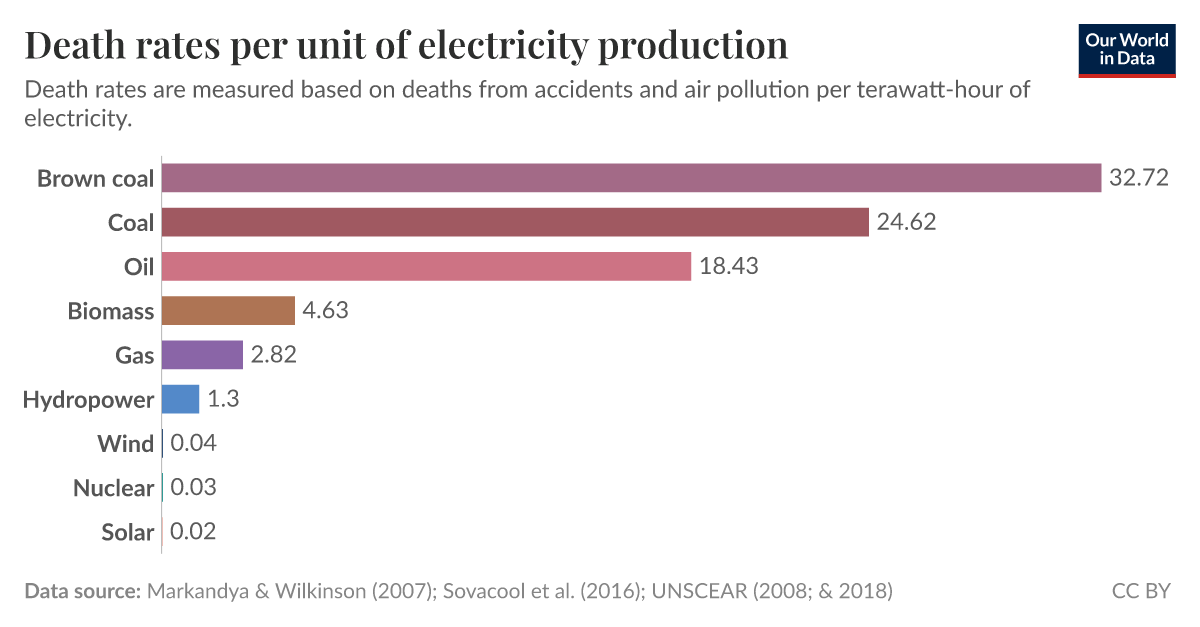From having a quick Google I can't find actual numbers of fatalities and potentially serious incidents, but feel like they should be around somewhere. I would like to find a breakdown of safety cases and estimated risks too, but expect they won't be publically available for either wind or nuclear.Is it safer compared to solar/wind/tidal? I doubt it
However, I wouldn't be surprised if it is safer, or very close. People have occasionally died from exposure, electric shock, and falling from height in the course of working in turbines, and have all the various risks associated with travel too. Not sure if anyone's died from fire here, but there was a story about a couple of workers dying in a fire in Denmark a little while ago. Same sort of risks that nuclear power plant workers face (an example of one of the worst incidents I remember hearing about being this one (luckily no fatalities in this case): https://www.shponline.co.uk/headlin...kers-injured-in-nuclear-power-plant-incident/), except nuclear power plants tend to be better set up for controlled and safe access to parts that need servicing etc - especially the new designs. I'm sure new designs of wind turbines are better than old ones too, but the nature of them requiring working at height and in confined spaces, often in remote and hard to reach areas, and requiring significant road travel to reach them means some of those risks are hard to design out and control...
As for the more external risks such as a release of radioactive gas or liquid leading to rediation exposure of people nearby, or a wind turbine falling over and hitting someone in a storm they're both going to be extremely low for new designs (and existing designs too to be fair).
Presumably taking the vast majority of journeys by plane, train, or bus now, given then they are the only mainstream modes of transport safer than driving? Walking and cycling being orders of magnitude more dangerous...I stopped as I found a better alternative. Why take the risk when you can avoid it?
Last edited:



